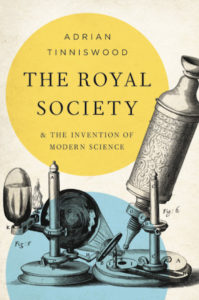 When it comes to widely recognizable organizations that have become synonymous with the furtherance of science, few can compare to The Royal Society. Founded in 1660, it has since numbered such luminaries as Isaac Newton, Charles Darwin, Albert Einstein, Dorthy Hodgkin, and Alan Turing among its fellows. Election to it has for centuries been considered one of the highest of honors, and the initials “FRS,” “ForMemFRS,” and “HonFRS” following one’s name bring an instant widening of the eyes to all who understand their significance.
When it comes to widely recognizable organizations that have become synonymous with the furtherance of science, few can compare to The Royal Society. Founded in 1660, it has since numbered such luminaries as Isaac Newton, Charles Darwin, Albert Einstein, Dorthy Hodgkin, and Alan Turing among its fellows. Election to it has for centuries been considered one of the highest of honors, and the initials “FRS,” “ForMemFRS,” and “HonFRS” following one’s name bring an instant widening of the eyes to all who understand their significance.
For those interested in learning more about the original, history, and role the Society has played over the years, Basic Books has recently published The Royal Society and the Invention of Modern Science by Adrian Tinniswood. Recounting the rather inauspicious beginnings of the Society and following it up to the present, Mr. Tinniswood lays out a history that is rich in great accomplishments punctuated with more than a few questionable experiments along the way (dog lovers are particularly cautioned to be aware of more than one instance of inexcusable behavior toward their favorite companions’ fellow species).
If you enjoyed reading this, please consider signing up for The Well-read Naturalist's newsletter. You'll receive a helpful list of recently published reviews, short essays, and notes about books in your e-mail inbox once each fortnight.
